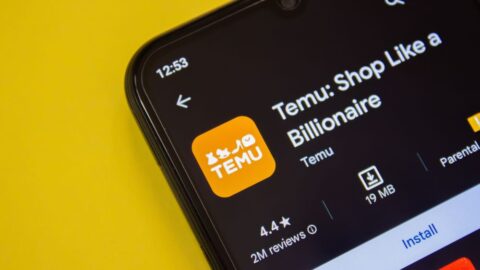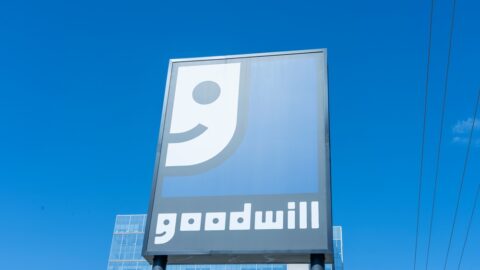Chinese e-Commerce giant Alibaba began trading on the New York Stock Exchange under the ticker “BABA,” opening at $92.70 per share at 11:53 a.m. on Friday, Sept. 19, 2014.
Alibaba carried the largest initial public offering (IPO) to date, pricing shares at $68 each on Thursday. The company can potentially raise as much as $24.3 billion if the company’s underwriters exercise an option to sell additional shares.
Alibaba’s entrance into the U.S. market is a potential threat to already established American businesses. “Think of the Alibaba Group as a unique mix of Amazon, eBay, and PayPal with a healthy dose of Google shopping,” stated Michael Tudor, President and CEO of digital agency Ripen eCommerce, in a company blog post. “Alibaba’s platforms are not only formidable competitors for U.S. e-Commerce giants; they offer new opportunities for small and mid-size e-Commerce stores to connect with billions of consumers who are already comfortable buying online.”
Advertisement
The retailer’s target IPO price range had been set between $66 and $68 per share, an increase from earlier predictions of $60 to $66, due to heavy demand for the offering.
As a result of the IPO launch, Alibaba was valued at $167.6 billion before a single share traded hands, placing it only behind Google ($390.5 billion) and Facebook ($193.9 billion) as the third most valuable Internet company in the world. This high valuation has caught the attention of U.S. businesses, since Alibaba is expanding its offerings to American customers. The company already has made its first foray into the U.S. e-Commerce market, launching online marketplace 11 Main in June.
Alibaba currently generates 93% of its earnings from China, according to Max Wolff, Chief Economist at Manhattan Venture Partners.
“The potential of increased competition with Chinese manufacturers is extremely real,” explained Haydn Simpson, Product Director for Brand Protection at global online brand protection firm NetNames. “Chinese manufactures enjoy cheaper labor and less stringent regulations, meaning that they can produce similar products to American companies for less.”
Alibaba often is compared to America’s e-Commerce powerhouse, Amazon, but the China-based enterprise operates very differently. Alibaba serves as a trading partner that links buyers with online stores; the organization does not own any warehouses or the goods they are shipped from, unlike Amazon.
Under the holding company, Alibaba Group, Alibaba operates its own B2B wholesale platform, Alibaba.com, in addition to three e-Commerce marketplaces: Tmall, Taobao and Juhuasuan. The wholesale platform connects manufacturers with buyers. Retailers can use the site to find the manufacturer, exporter or wholesaler that suits their unique sourcing needs.
- Tmall is most similar to Amazon, providing a marketplace for local and international retailers to sell brand name goods directly to consumers. “U.S. e-Retailers will benefit from the [Tmall] marketplace’s brand-friendliness and the fact that it reduces obstacles to reaching a foreign audience,” said Tudor. “It also has a very merchant-friendly commission rate, making it one of the most attractive channels for retailers around the world.”
- Taobao is a consumer-to-consumer shopping platform comparable to eBay, in that sellers can put items up for sale for either a fixed price or for bidding. The marketplace uses its own developed mobile payment solution, AliPay, which allows consumers to pay in full only after they have received their product and are satisfied with it.
- Juhuasuan serves as the Group’s daily deal site, offering discounted prices for group buyers.
In a recent filing with the SEC, Jack Ma, Founder and Chairman of Alibaba, included a letter to investors that announced the company’s mission to expand globally and work with SMBs: “We want to help small businesses grow by solving their problems through Internet technology,” Ma said. “We fight for the little guy.”
Alibaba’s Counterfeit Problems
Although Alibaba appears to have a bright future as a public entity in the U.S., the company must contend with significant accusations concerning bad business practices. Alibaba and its online platforms will be hurdling criticism from buyers and analysts who have complained that the company suffers from an abundance of counterfeit products, perhaps as high as 80% of sold items, as outlined on Money.CNN.com. The Office of the U.S. Trade Representative labeled Taobao as a “notorious” marketplace, but removed it from the annual notorious list in late 2012.
As a measure against counterfeiting with the IPO looming, Alibaba launched a “three strikes” policy to be deployed on Alibaba.com and marketplace AliExpress.com.
Simpson has urged U.S. government officials to take the issue seriously, particularly regarding the protection of U.S. Intellectual Property rights.
“If a new, relatively deregulated, platform is successfully launched giving these manufacturers and products a straightforward and cost-effective method of targeting U.S. consumers with cheap sub-standard products, those consumers will buy these products using the Internet as a shop window,” said Simpson. “All businesses, including more vulnerable small businesses, in the U.S. will see increased competition from oversees manufacturers and this will lead to more challenging market conditions.”
Even with the criticism, the company’s most recent financial report revealed that Q2 2014 revenue grew 46%. Additionally, Alibaba’s monthly active mobile users climbed 38% in a six-month span to 188 million.
“At least in the short-term, Alibaba will likely focus on increasing its reach at home by improving delivery logistics and helping to increase domestic access to the web,” said Tudor. “This is great news for global brands and small U.S. merchants planning to use Alibaba as a channel to reach the Chinese e-Commerce market.”














